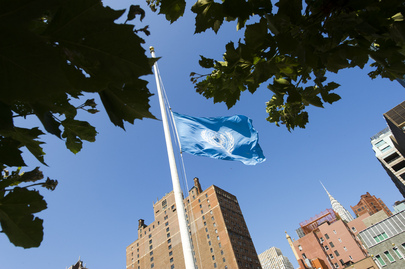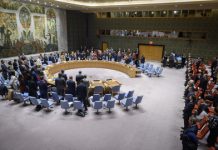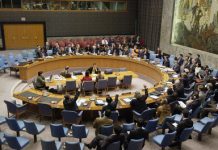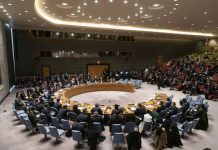Half a century ago, the United States and the Soviet Union united on a text to ban biological weapons and it has remained a foundation of international law ever since.
The Biological Weapons Convention (BWC)– which came into force on 26 March 1975 – prohibits an entire category of arms including viruses and toxins. All but nine UN Member States are party to the treaty.
Critics point out that the convention has no enforcement mechanism – that was something that Russia and the United States couldn’t agree on.
But this is perhaps understandable, as many active agents that could be used in biological warfare exist in nature, such as smallpox or anthrax, says Daniel Feakes, head of the Biological Weapons Convention unit at the UN Office for Disarmament Affairs.
Here he is now, speaking to UN News’s Juliette Maigné.
Source of original article: United Nations (news.un.org). Photo credit: UN. The content of this article does not necessarily reflect the views or opinion of Global Diaspora News (www.globaldiasporanews.com).
To submit your press release: (https://www.globaldiasporanews.com/pr).
To advertise on Global Diaspora News: (www.globaldiasporanews.com/ads).
Sign up to Global Diaspora News newsletter (https://www.globaldiasporanews.com/newsletter/) to start receiving updates and opportunities directly in your email inbox for free.

































